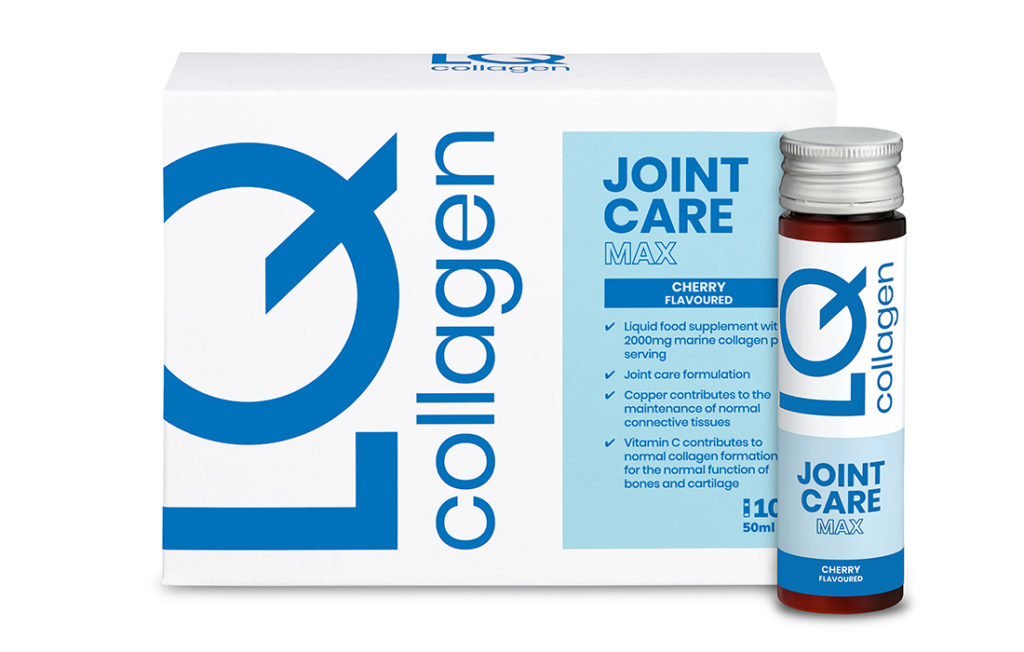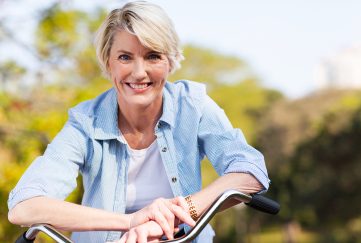Don’t Stop Moving In Lockdown

GP and medical broadcaster Dr Sarah Jarvis explains the importance of activity for joints
With a recent study revealing that nearly two thirds (57%) of people are spending more time sitting down than before lockdown and that 42% of Brits are finding it hard to make time for daily exercise, it would appear that the latest national lockdown restrictions means that we are definitely moving less. This sedentary slump, and the reduced activity and movement that comes with it, coupled with the winter elements means that many people are experiencing an increase in joint pain.
Respected General Practitioner and medical broadcaster Dr Sarah Jarvis explains why it’s so important to be active.
Keep moving
Sarah says,
“A sedentary lifestyle is closely linked with a higher risk of osteoarthritis. To make matters worse, it is also linked to a higher risk of heart disease, type 2 diabetes and some forms of cancer.
The single most important way of preserving your joints is to use them – this may seem counterintuitive but if they stay in the same position for long periods, joints stiffen up.
“Regular exercise is crucial for combatting joint problems, even for people who have arthritis. What many people don’t realise the extent to which your joints are supported by your muscles, which means that keeping your muscles strong helps protect your joints from injury, reducing pain and stiffness.”
“The most beneficial exercise, on the whole, is the one you’re most likely to stick with. If you have significant problems with your joints, you may want to avoid very high impact exercise such as HIIT (high intensity interval training) and step classes. A range of activities which put your joints through their full range of movement, but which are ideally are not too high impact and do not carry a high risk of injury, is ideal. Running (in the right shoes with lots of shock absorbency) and tennis are moderate impact while cycling and yoga are low impact.
“Among people working from offices or in computer-based roles, more than half of time is spent sitting. In theory, home working allows more time free from commuting: and one way of using this free time would be to exercise more. However, the COVID-19 pandemic has shown us that for more than 1 in 4 people, working from home has reduced their level of activity and a large international study using digital exercise technology showed that within 2 weeks of lockdown, exercise levels as measured by daily steps in the UK had dropped by 15%.
Once you’re over 50 in particular, it’s important to add individual muscle group strengthening exercise to your regular aerobic exercise regime.
“Combine aerobic exercise (the kind that makes you mildly out of breath) with specific joint exercises to increase mobility and muscle strength for individual joints. Yoga, tai-chi, resistance band workouts, heavy gardening and Pilates are all good for strengthening muscles: this reduces the risk of falls but also protects your joints. It’s also worth remembering ‘informal’ activity can also be beneficial – so taking the stairs rather than the lift, getting off the bus one stop earlier, vigorous cleaning, etc.”
Maintain a healthy weight
“Maintaining a healthy weight can make a huge difference to the risk of developing joint problems,” says Dr Sarah Jarvis.
It’s important to remember that with age, your levels of collagen, which are crucial for the health of cartilage and muscle functioning, drop. This makes you more prone to joint problems, especially as you get older. Being overweight and sedentary have a major impact on your risk of developing joint problems.
Most of the vitamins and minerals we need can be found in a health balanced diet. Eat a rainbow of veg and fruit – at least five portions a day (ideally) more and keep your intake of ultra-processed foods to a minimum. The obvious exception is vitamin D which is difficult to get enough of from diet.
Supplement your diet
Dr Sarah Jarvis says, “Many people with joint problems use supplements. Among the most popular are chondroitin, glucosamine and collagen.
“A review of all the studies of chondroitin suggests it has few side effects and may provide ‘small to moderate’ benefit. Glucosamine has been found to relieve symptoms of osteoarthritis. When compared to a range of other supplements, collagen hydrolysate showed ‘large and clinically important effects for pain reduction at short term’ while of all the supplements compared, collagen was one of only two which showed ‘clinically important effects on pain’ in the medium term. Collagen also significantly reduces stiffness and improves ability to function.
“If you are prone to joint problems or other people in your family have osteoarthritis, you might want to consider taking supplements to prevent rather than treat joint issues. I’m working with a brand called LQ Collagen (priced from £18.99 (10 x 25ml bottles) available from www.boots.com, www.holland&barret.com and www.lqcollagen.com) who make collagen joint care supplements.”
About LQ Collagen
LQ Collagen Joint Care is an innovative range of high quality supplements which are backed by science and work from the inside out. Each product in the LQ Collagen Joint Care range is formulated with high-quality hydrolysed marine collagen that varies in strength between 1,500mg and 5,000mg per serving. Available in fast-acting liquid and powder formats, with a pleasant and subtle cherry flavour, each product is supported by the addition of glucosamine, hyaluronic acid, magnesium, ginger, vitamin C and copper which contributes to the maintenance of normal connective tissue. Free from gluten and dairy. Available from www.boots.com, www.holland&barret.com and www.lqcollagen.com). Prices from £18.99 (10 x 25ml bottles).
Win a month’s supply of LQ Collagen Joint Care MAX worth £83.97!
Enter our supplements for suppleness competition with LQ Collagen from Feb 16-22, 2021.





